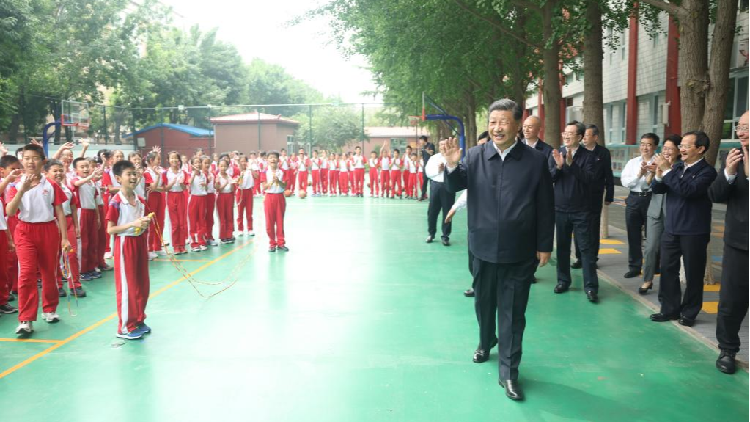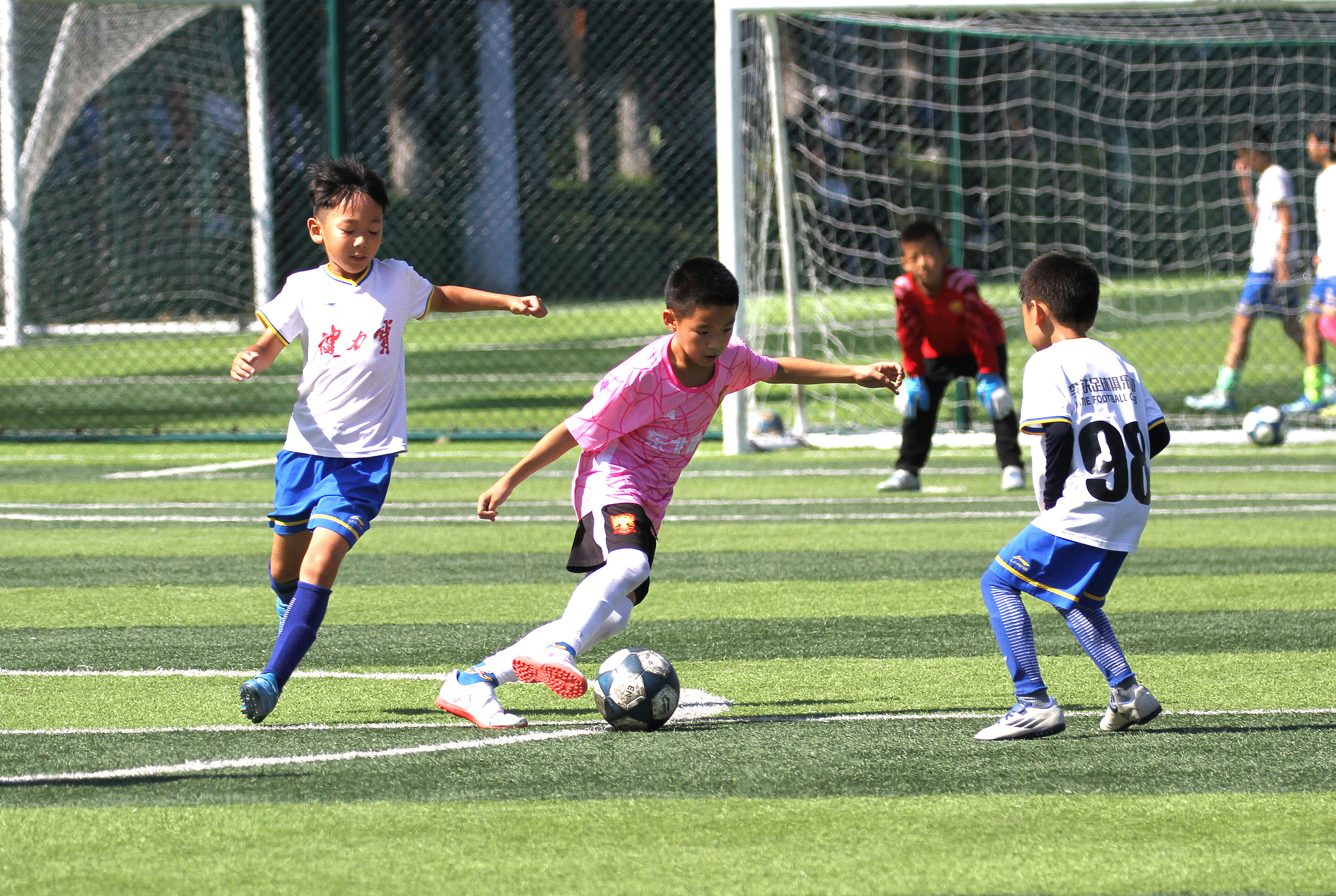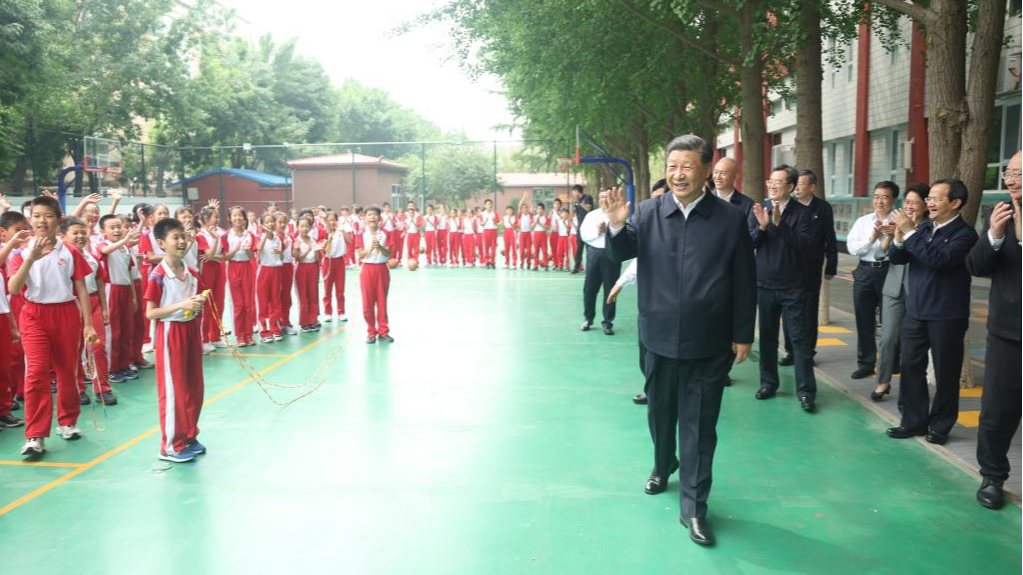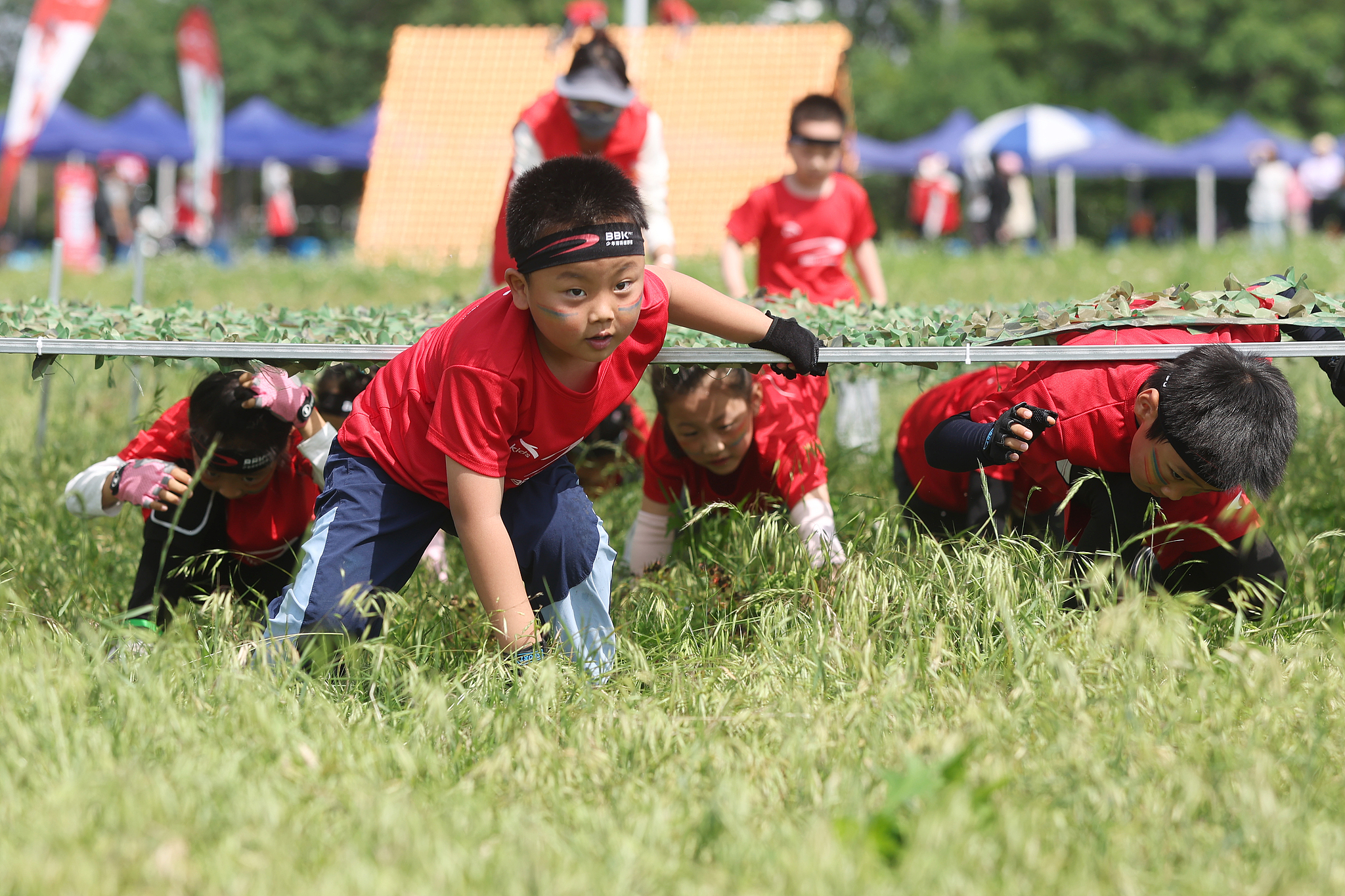International Children's Day Highlights China’s Commitment to Children’s Health and Development
Xi Jinping emphasizes prioritizing children's health through enhanced sports and physical education to foster balanced development in China.


In the fall semester of 2024, primary and secondary schools throughout Beijing introduced a new initiative: extending daily break periods to 15 minutes, an increase of five minutes compared to previous schedules. This adjustment is a part of broader efforts to foster a more balanced educational environment for children, prioritizing their physical and mental well-being alongside academic pursuits.
With these longer breaks, students now have enhanced opportunities for physical activity and creative play. Classrooms and playgrounds alike are becoming lively spaces where youngsters can recharge, socialize, and develop essential motor and social skills. “After the exercises, I feel full of energy,” shared Zhou Lezhi, a junior high student in Beijing. “It's really fun to do different kinds of exercises during the break, and it feels really different to do the activities created by ourselves.” Such feedback reflects the enthusiasm with which children are embracing these changes.
The movement is not limited to Beijing; local governments across China are rolling out similar policies to ensure that recess and physical education (PE) become integral parts of students’ daily routines. The coordinated development of academic learning and physical exercise has gained fresh momentum, responding to a nationwide call for holistic child development.
Central leadership and a health-first philosophy have played pivotal roles in driving these reforms. President Xi Jinping has consistently emphasized the importance of children’s health and comprehensive development, regularly engaging with students, visiting schools, and responding to their concerns. He has highlighted that the nation’s future hinges on the robust growth—physically, morally, intellectually, and aesthetically—of its youth, declaring, "Physical growth comes first for juveniles," and urging that exercise is the most effective way to build the strength of China’s next generation.

Policies reflecting this commitment have steadily emerged. In 2021, the State Council issued the Outline for the Development of Chinese Children (2021-2030), placing children’s health at the forefront of national objectives. The following year, the Law on Physical Culture and Sports underwent its first major revision in decades. Notably, sections on “Social Sports” and “School Physical Education” were updated to “National Fitness” and “Youth and School Sports,” underscoring a heightened focus on public and youth-specific fitness.
Financial support for education has also been strengthened. In June 2023, central authorities introduced a guideline to ensure basic public education services are robust and reach all children, with an emphasis on sustained investment. Meanwhile, initiatives like the 2024 Guidance on Myopia Prevention and Control in Kindergartens and Primary Schools seek to combat rising myopia rates among young children, featuring eight specific measures to safeguard ocular health.

Looking ahead, China’s 2035 education blueprint calls for ensuring that primary and secondary students engage in at least two hours of physical activity each day—a bold step aimed at reversing the trends of myopia and obesity among youth. Across the country, schools are introducing high-quality PE programs geared towards enhancing speed, agility, strength, and endurance.
With the implementation of expanded break times, upgraded facilities, and supportive legislation, China continues its drive to create an environment where every child can thrive physically, mentally, and academically. As President Xi has stressed, China will be strong only when its young people are strong, highlighting the enduring belief that children’s health is the backbone of the nation's future.




